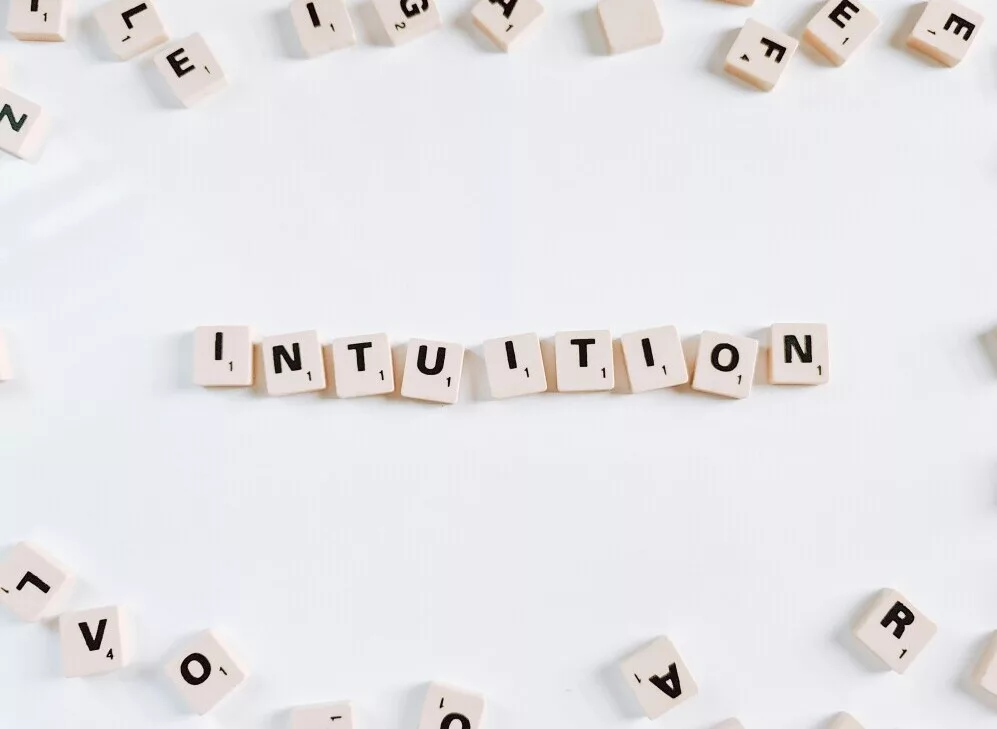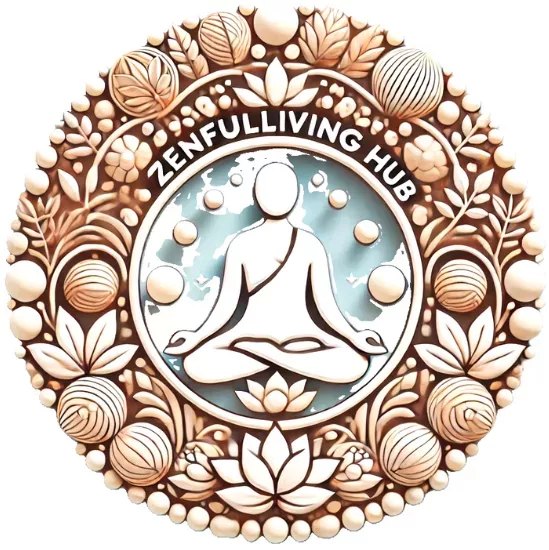
Intuition is like an inner compass, guiding us toward decisions that align with our deeper selves. Yet, for many, it remains an underutilized resource. By understanding and nurturing this natural ability, you can transform everyday choices into opportunities for growth and alignment. Let’s explore 10 practical ways to strengthen your intuitive abilities and weave them into your daily life.
1. Practice Mindfulness
Mindfulness is a foundational practice for developing intuition. By being fully present in the moment, you reduce mental clutter and allow your inner voice to emerge more clearly. Steve Jobs, co-founder of Apple, credited his practice of Zen Buddhism and mindfulness meditation for his ability to make innovative decisions and trust his instincts, even amid skepticism. To incorporate mindfulness, start with 5-10 minutes each day of mindful breathing techniques or observing your surroundings. Apps like Headspace or Calm can help establish consistency.
2. Meditate Regularly
Meditation creates space for introspection and connection with your inner self. It helps clear mental distractions, making way for intuitive clarity to surface. Oprah Winfrey has often shared how her daily meditation practice helps her stay centered and in tune with her intuition, guiding her decisions both personally and professionally. Visualization meditations—like imagining a serene landscape—can also invite intuitive insights. Here is a detailed meditation script to enhance your intuition:
- Find a quiet space and sit comfortably, ensuring your spine is straight but relaxed.
- Close your eyes and take three deep breaths, inhaling deeply through your nose and exhaling slowly through your mouth. Feel the tension leaving your body with each exhale.
- Begin to visualize a glowing light at the center of your chest, warm and pulsating gently. This light represents your intuition—a source of wisdom and clarity.
- With every inhale, imagine the light growing brighter, spreading warmth and calm throughout your chest and into your entire body.
- As you exhale, picture any doubts, fears, or distractions dissipating like smoke, leaving you feeling lighter and more focused.
- Picture yourself stepping into a tranquil forest. The air is cool and fresh, and the soft rustling of leaves creates a soothing background sound. Notice the vibrant greens of the trees, the earthy scent of the ground, and the gentle sunlight filtering through the canopy.
- As you walk along the forest path, you come across a serene clearing with a small, bubbling brook. Sitting beside the brook is a guide. This guide may appear as a person, an animal, or even a glowing figure—trust whatever form feels natural.
- Approach the guide and take a moment to connect. Ask the guide a question that has been on your mind, such as “What should I focus on right now?” or “How can I trust my intuition more?”
- Wait patiently for a response. It may come as words, an image, a sensation, or simply a sense of understanding. Trust whatever arises, even if it feels subtle or abstract.
- Spend some time with your guide, absorbing their energy of trust and wisdom. When you feel ready, thank them for their guidance and begin to retrace your steps out of the forest.
- Visualize the forest fading away as you return your focus to the glowing light in your chest. Feel its warmth and clarity.
- Take a few deep breaths, gently wiggle your fingers and toes, and open your eyes. Reflect on any insights or feelings that emerged during the meditation. Meditation creates space for introspection and connection with your inner self. It helps clear mental distractions, making way for intuitive clarity to surface.
3. Pay Attention to Your Body
Your body often serves as an intuitive messenger, sending signals like a tightening in your stomach or a sense of ease. Serena Williams, the tennis champion, frequently talks about how she listens to her body and intuition, particularly when making decisions about her training and career. The mind-body connection plays a vital role in helping you trust these signals. To develop this skill, practice a daily body scan by focusing on each part of your body and noting any sensations or emotions that arise.
4. Journal Your Thoughts and Feelings
Journaling connects you with your inner thoughts and helps identify patterns in your intuition. Richard Branson, founder of Virgin Group, is known for keeping detailed journals to track ideas and reflect on decisions often guided by his gut feelings. Writing about your decisions, feelings, or gut instincts daily can refine this skill. Prompts like “What did my intuition tell me today?” can help guide your reflections. Self-awareness practices can further deepen this connection.
5. Engage in Creative Activities
Creativity and intuition are deeply connected. Activities like painting, writing, or playing music encourage free-flowing thought and unlock deeper insights. Albert Einstein famously said, “Imagination is more important than knowledge,” and his intuitive problem-solving often came through creative thought experiments. Spend 20 minutes on a creative activity you enjoy, focusing on the process rather than the result, to stimulate intuitive thinking.
6. Practice Active Listening
Listening deeply to others enhances your intuitive skills by helping you pick up on unspoken cues. Barack Obama, known for his exceptional listening abilities, credits this skill for aiding thoughtful and intuitive decision-making as a leader. Pay close attention to what others say, their tone, and their body language, reflecting afterward on the emotions or subtexts you noticed.
7. Spend Time in Nature
Nature has a grounding effect that helps quiet the mind and enhance intuitive clarity. Henry David Thoreau, the transcendentalist author, often drew inspiration and intuitive insights from his time spent in nature at Walden Pond. Schedule regular outdoor time—whether it’s a walk in the park or 20 minutes in your backyard—to observe and connect with the natural world. This practice rejuvenates your mind and fosters intuitive clarity.
8. Trust Your Gut Feelings
Trusting your intuition builds confidence over time. Start small, like listening to your gut when choosing a meal or deciding on a route home. Jeff Bezos, founder of Amazon, has frequently attributed his pivotal business decisions, including the launch of Amazon Web Services, to following his gut instincts. Keep a journal to track instances where you trusted or ignored your intuition and review it regularly to reinforce your confidence.
9. Reflect on Past Intuitive Experiences
Reflecting on moments when your intuition led to positive outcomes strengthens your trust in this inner guidance. J.K. Rowling, for instance, trusted her intuition when she began writing the Harry Potter series, despite facing numerous rejections. Think about three instances where your intuition proved right, noting what you felt and how you acted. These reflections provide valuable lessons for future decisions.
10. Create a Daily Intuition Practice
Establishing a routine that integrates intuitive development can have a profound impact. Arianna Huffington incorporates practices like meditation, gratitude journaling, and mindfulness into her daily routine, which she credits for enhancing her intuitive decision-making. Here is an enhanced meditation script you can incorporate into your daily intuition practice:
- Begin your day by sitting in a comfortable position, either on the floor or in a chair, with your hands resting on your knees or in your lap.
- Close your eyes and take a moment to tune into your body. Notice the rhythm of your breath, the sensation of your body against the surface you’re sitting on, and any lingering tension.
- Take three deep breaths, allowing yourself to relax further with each exhale. Feel the day’s possibilities gently unfolding.
- Picture a path stretching out before you. This path is surrounded by lush, vibrant greenery and bathed in soft, golden light. You can hear birds chirping softly and feel a gentle breeze on your skin.
- At the start of the path, see a small, glowing object resting on the ground. This object represents the wisdom and guidance you need for the day ahead. It may look like a gem, a flame, or any shape that feels significant to you.
- Begin walking toward the object, noticing every detail along the way: the crunch of gravel underfoot, the distant sound of flowing water, and the warmth of the sun on your face. Each step brings you closer to clarity and focus.
- When you reach the glowing object, kneel down and pick it up. Hold it in your hands and feel its energy merging with yours. Silently ask it, “What guidance do I need today?” or “What should I focus on to stay aligned with my intuition?”
- Wait for a response, which may come as an image, a word, a sensation, or even just a feeling of calm assurance. Trust whatever arises.
- Place the object gently your heart and visualize its energy spreading through your body, filling you with confidence and purpose for the day ahead.
- When you’re ready, slowly open your eyes, take a few grounding breaths, and set an intention to carry this sense of guidance with you throughout the day. Establishing a routine that integrates intuitive development can have a profound impact. Arianna Huffington incorporates practices like meditation, gratitude journaling, and mindfulness into her daily routine, which she credits for enhancing her intuitive decision-making.
Final Thoughts
Strengthening your intuition isn’t about acquiring a new skill but rather uncovering one you already possess. By incorporating these 10 strategies into your daily life, along with examples from renowned individuals, you’ll cultivate a deeper connection with your inner wisdom. Trusting your intuition can lead to more aligned decisions, greater confidence, and a richer, more fulfilling life.
